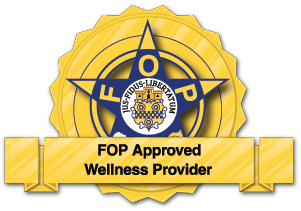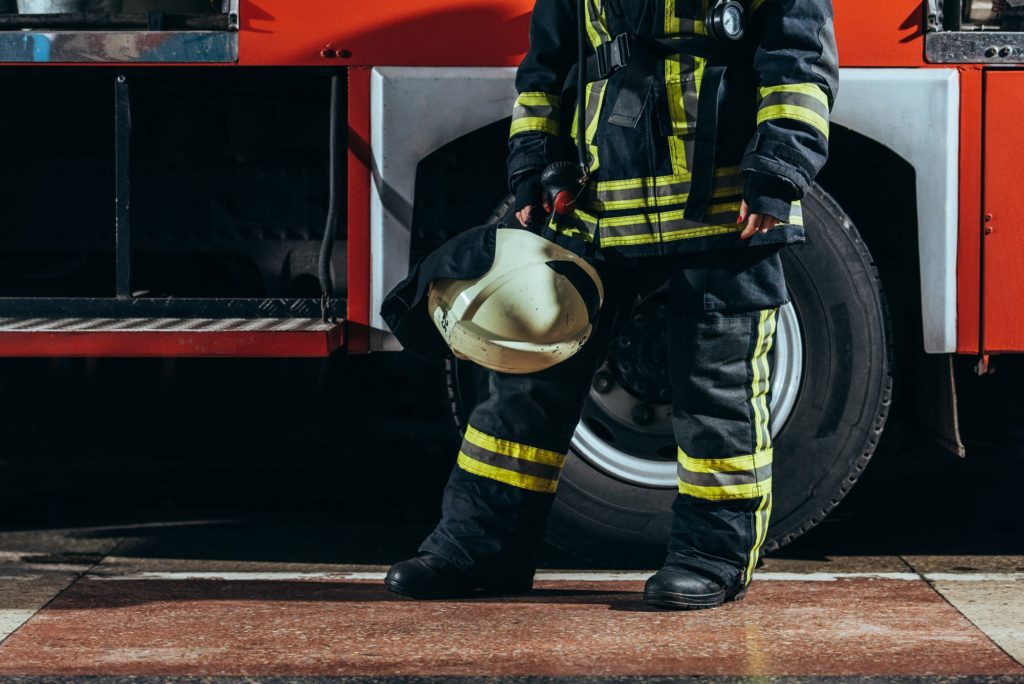Treatment for first responders should be comprehensive to kick-start a successful recovery journey.
First responders are commonly exposed to stressful circumstances while performing job responsibilities. From providing medical care under dangerous conditions to helping citizens out of critical, sometimes life-threatening situations, these heroes often go above and beyond the call of duty. And sometimes, as a result, they end up battling mental illness and using illicit substances to deal with the pain and trauma.
First responder rehab differs from some of the more traditional forms of therapy as it accounts for the unique circumstances these heroes are consistently exposed to.
If you or a loved one need help now please call (888) 995-6013 or click here to have us run a no-cost confidential verification of your benefits so you can get started with treatment today.
We accept the following insurance providers.
There’s no shortage of adverse events that can perpetuate addiction among first responders, whether due to compromised mental health including post-traumatic stress disorder (PTSD) or other causes. Given the extraordinary strain, these individuals must perform under, drug and alcohol addiction often becomes a coping mechanism. First responder rehab centralizes the repeated trauma and anxiety these individuals experience just going to work.
Self-medicating with drugs and alcohol as a first responder is dangerous in many ways. Intensive treatment is necessary to ensure they don’t hurt themselves or others while in the line of duty. Treatment for first responders also focuses on the mental wellness of those with such burdensome jobs. As such, addiction treatment for first responders addresses co-occurring mental health conditions and repeated exposure to violence and other traumatic events.

Police officers often deal with high-intensity situations as they protect and serve. They are not only often in harm’s way but also witness some of the most disturbing elements of society. Police officers typically appear first at a crime scene and may have to investigate gruesome acts, including murders, assaults, fatalities, and horrific accidents.
As a result of the situations they’re routinely exposed to, police officers have startlingly high rates of substance abuse. Mental health issues are common among this population as well, as self-medicating often brings immediate relief from the strain of the job. Police officers who work drug beats may also find themselves more likely to abuse drugs because of constant exposure to illicit substances and the crimes that often accompany such a scene.
Firefighters are likely to struggle with substance abuse because they’re in constant physical danger when doing their jobs. These heroes are tasked with running into burning structures even as others run away from them. Burns, smoke inhalation, and other job-related injuries are par for the course in this profession. However, physical pain brings the need for relief, which is why painkiller use is common among firefighters.
In addition to routine exposure to dangerous situations, firefighters often work 24-hour shifts. This means they get little to no sleep during this time, which can significantly exacerbate mental health conditions. Some turn to drugs or alcohol to ease the symptoms of mental illness.
Paramedics and emergency medical technicians (EMTs) also often work long, grueling shifts on ambulances, in the field with fire rescue, or addressing other acute medical emergencies. They’re also usually first on the scene in life-or-death situations and face as many hazards as other first responders.
The constant exposure to stress puts paramedics and EMTs at significant risk of developing physical or mental illness, which means a greater likelihood of using drugs or alcohol as coping mechanisms.
Military members sometimes experience events well beyond the pale of what ordinary people experience, even among first responders. Proximity to conflict sometimes means witnessing inhumane actions that may contribute to severe PTSD. Many veterans experience substance abuse disorder as they try to navigate the many ways their time in the military changed them. Those on active duty do the same to escape some of the constant strain they may feel, depending on where they’re serving.
Moreover, military personnel often contend with extended absences from home, which can strain some of the most important relationships in their lives. Returning home with PTSD may only cause these relationships to fracture further, leaving some with little to no support.
Mental illness is a defining factor in understanding substance abuse among first responders. The constant exposure to violence, disaster, accidents, disease, and trauma may sometimes put first responders in a precarious mental state. As a result, developing a mental health disorder becomes more likely. Common mental health conditions among first responder populations include:

Addiction treatment for first responders reflects traditional treatment in some ways. For example, individual and group therapy sessions are components of treatment, as are 12-step programs, detox, and family therapy sessions.
Where first responder rehab for this population differs is through addressing some of the professional pitfalls of this stressful work. The treatment process emphasizes the role PTSD and consistent exposure to violence and danger play in perpetuating addiction. Moreover, first responder treatment often groups individuals with a similar professional background, as research shows this is a beneficial approach to treatment for first responders.
Addressing PTSD is particularly important, as it can exacerbate an underlying mental health condition and create behavioral challenges that endanger the individual or their loved ones. Some first responders struggle with substance abuse disorder and a mental health condition, which means they may have a dual diagnosis. This requires specialized therapies to ensure both conditions are addressed adequately through therapy, medication (if necessary), and access to resources to promote long-term recovery.
First responder rehab should be comprehensive to kick-start a successful recovery journey. Effectively countering some of the challenges of addiction and other mental health conditions is paramount in getting these heroes the help they deserve.
Click here to have us run a no-cost confidential verification of your benefits so you can get started with treatment today.